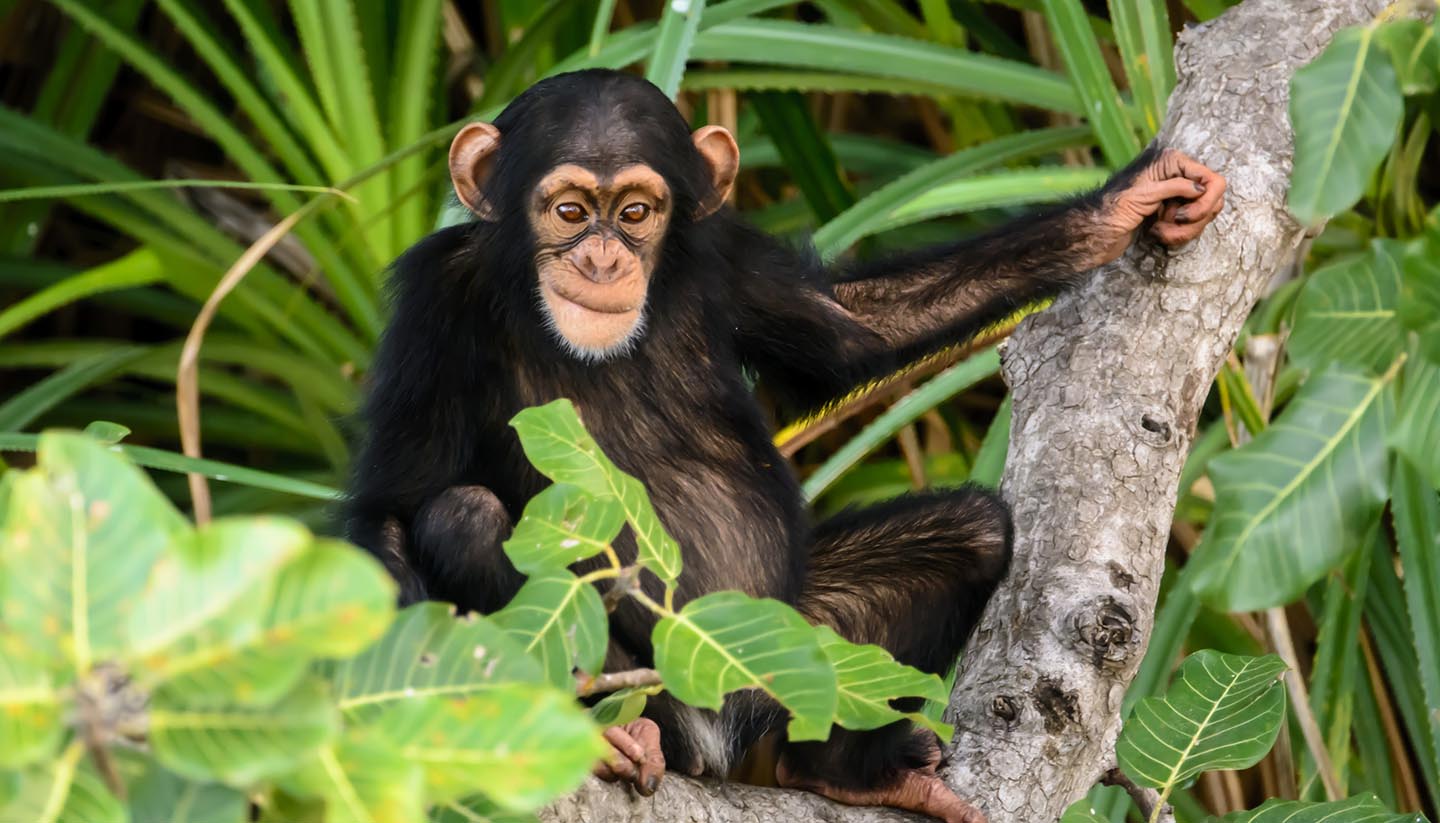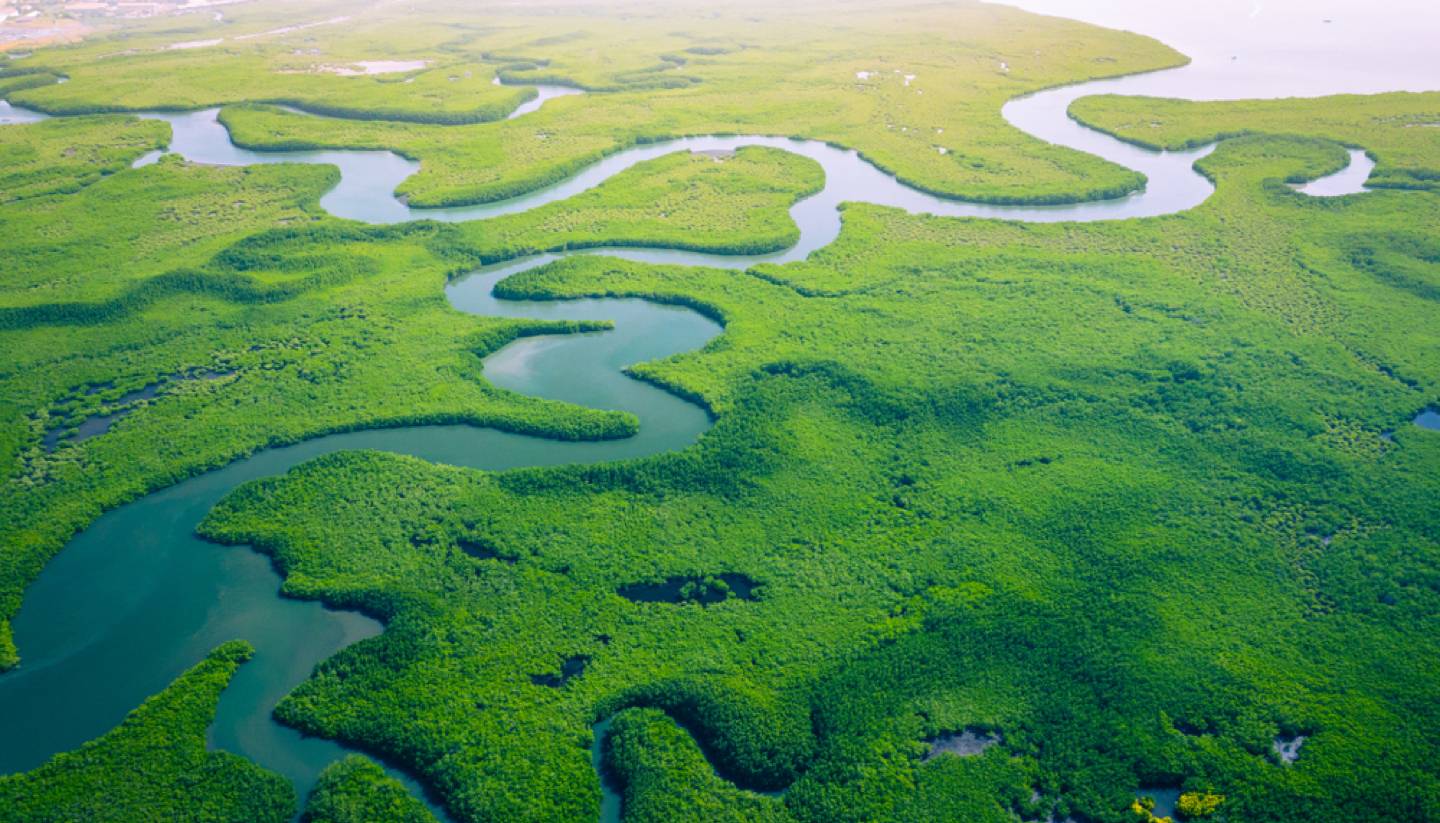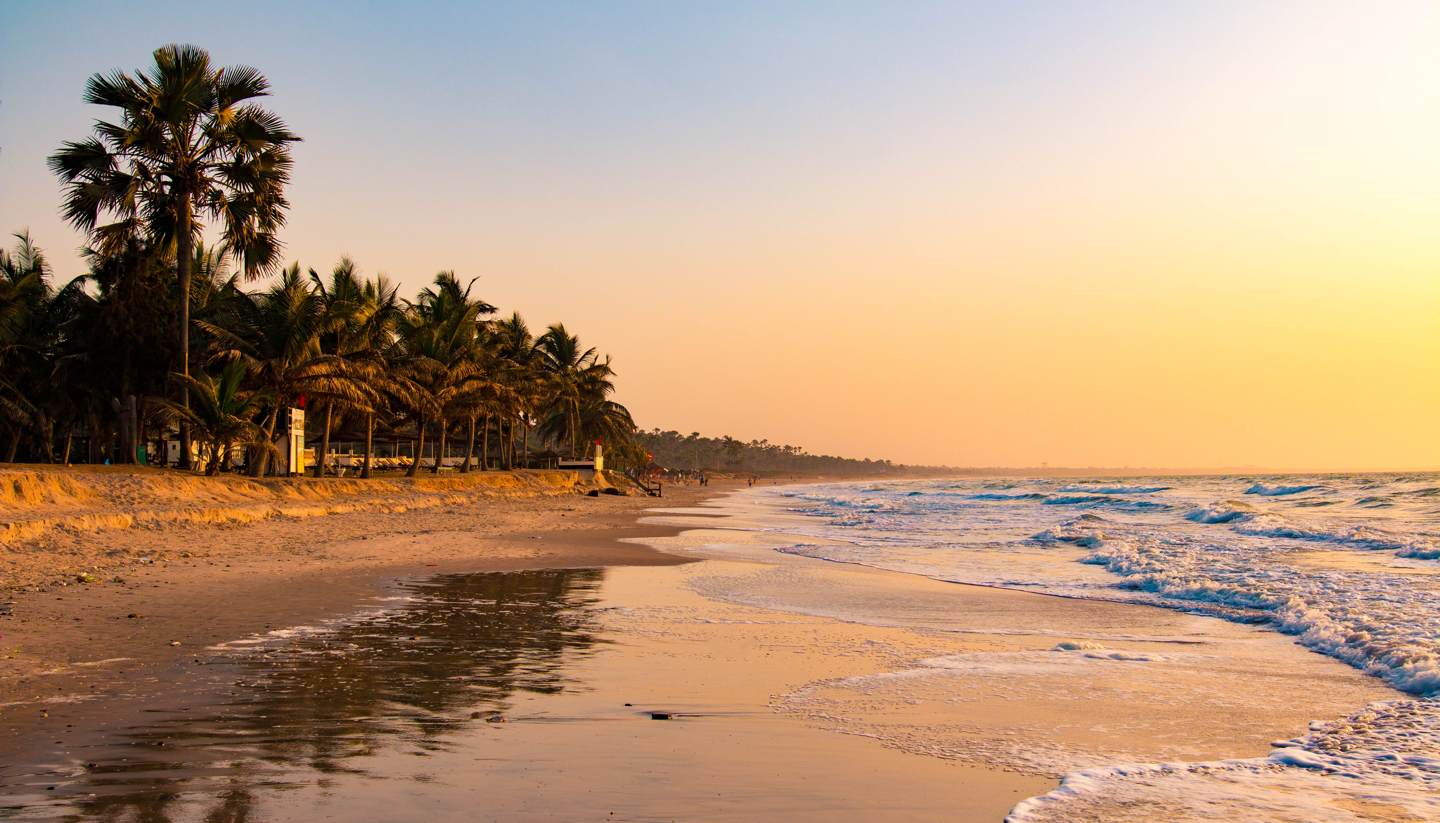Gambia travel guide
About Gambia
The Gambia may be mainland Africa's smallest nation, but it punches way above its weight in terms of attractions. With its glorious long sandy beaches, bustling architecturally-stunning towns and wealth of wildlife, it's perhaps the most striking of all West African countries. What's more, its people are kind and welcoming, giving The Gambia the reputation of being the 'The Smiling Coast'.
Virtually enveloped by its much larger neighbour Senegal, The Gambia's narrow landmass still retains its own clear identity, despite the colonial carve up of Africa. Although this accessible Anglophone country's more obvious draw is perhaps the joy of winter sun at good-value rates, its rich history and fascinating mix of cultures make it hard to pigeonhole. If you escape the sun loungers, you will uncover another side of the country, rich in eco-tourism opportunities, wilderness, wildlife and bird watching.
Inextricably linked to the Gambia River, one of Africa's great waterways, The Gambia comprises a varied landscape, featuring lush tropical forests, swamps, marshes and large areas of wooded savannah. Alongside this are Gambia's parks, reserves and riverbanks including Kiang West National Park and River Gambia National Park, where you’ll see all kinds of wildlife, including monkeys, crocodiles, a small population of hippos and well over 500 bird species.
Of course, one of the main attractions is the coast. There are only 80 kilometres of shoreline, but the beaches are some of the most stunning in the region. Relatively uncrowded and shaded by multitudes of swaying palm trees, you'll be forgiven for thinking you've stumbled on paradise. Tanji and Bakau are both working beaches, featuring arrays of colourful pirogues and little fishing boats, perfect for experiencing traditional activities. For awe-inspiring sunsets, pick a spot on Batokunku Beach and stretch out on the unspoilt sand.
Visitors keen to experience West African music and rural culture may head off the beaten track and up-country to simple, traditional villages. All year round you'll find vibrant festivals, events full of traditional drumming, energetic dancing as well as customary wrestling matches. But for many, it is The Gambia's idyllic cocktail of sunny days, warm welcomes and relaxing Atlantic beach resorts that lures them time and again to this little slice of African heaven.
Key facts
11,295 sq km (4,361 sq miles).
2,280,102 (World Bank estimate 2018)
202 per sq km.
Banjul.
Republic.
President Adama Barrow since January 2017.
President Adama Barrow since January 2017.
Travel Advice
Before you travel
No travel can be guaranteed safe. Read all the advice in this guide. You may also find it helpful to:
- see general advice for women travellers
- read our guide on disability and travel abroad
- see general advice for LGBT+ travellers
- read about safety for solo and independent travel
- see advice on volunteering and adventure travel abroad
Travel insurance
If you choose to travel, research your destinations and get appropriate travel insurance. Insurance should cover your itinerary, planned activities and expenses in an emergency.
About FCDO travel advice
The Foreign, Commonwealth & Development Office (FCDO) provides advice about risks of travel to help British nationals make informed decisions. Find out more about FCDO travel advice.
Get travel advice updates
Sign up to get email notifications when this travel advice is updated.
Follow FCDO:
This information is for people travelling on a full ‘British citizen’ passport from the UK. It is based on the UK government’s understanding of The Gambia’s current rules for the most common types of travel.
The authorities in The Gambia set and enforce entry rules. If you’re not sure how these requirements apply to you, contact the Gambian High Commission in the UK.
Passport validity requirements
To enter The Gambia, your passport must be valid for the duration of your stay.
Check with your travel provider that your passport and other travel documents meet requirements. Renew your passport if you need to.
You will be denied entry if you do not have a valid travel document or try to use a passport that has been reported lost or stolen.
Visa requirements
You do not need a visa to visit The Gambia. You’ll get a stamp in your passport that allows you to stay for 28 days when you arrive.
You can get 2 extensions of 28 days from the Immigration Office in Banjul or the tourist police stations in the Tourism Development Area.
You’ll need a residence permit for longer stays. For more information contact the Gambian High Commission in the UK.
Airport tax
You must pay an Airport Security Fee when you arrive in and leave the country. The fee is 20 US dollars, which can also be paid in euros, British pounds, or local currency. Visa credit cards are accepted but card machines are often out of service. You can pay the fee at marked kiosks in Banjul International Airport. Children aged 1 or under and passengers transiting are exempt.
Entry through land borders
If you are driving across the border in a private vehicle you may be asked to pay a vehicle registration fee.
Vaccine requirements
To enter The Gambia, you must have a certificate to prove you’ve had a yellow fever vaccination if you’re coming from a country listed as a transmission risk.
You may need a yellow fever certificate for onward travel to some other countries, due to the risk of yellow fever in The Gambia.
For full details about medical entry requirements and recommended vaccinations, see TravelHealthPro’s The Gambia guide.
Customs rules
There are strict rules about goods you can take into or out of The Gambia. You must declare anything that may be prohibited or subject to tax or duty.
Terrorism
There is a high threat of terrorist attack globally affecting UK interests and British nationals, including from groups and individuals who view the UK and British nationals as targets. Stay aware of your surroundings at all times.
UK Counter Terrorism Policing has information and advice on staying safe abroad and what to do in the event of a terrorist attack. Find out how to reduce your risk from terrorism while abroad.
Terrorism in The Gambia
Although there is no recent history of terrorism in The Gambia, attacks cannot be ruled out.
Attacks could be indiscriminate including in places visited by foreigners. Stay aware of your surroundings, keep up to date with local media reports and follow the advice of local authorities.
Political situation
Avoid large gatherings and protests in public areas and follow the advice of local authorities.
Crime
Be cautious of young men locally known as ‘bumsters’ who approach tourists, particularly on beaches, offering help or to act as local guides. They may offer to take you on tours into Senegal. It is unlikely they will follow the correct immigration procedures. This could result in you being detained by immigration authorities. They may also ask for money.
Be polite but firm in refusing unwanted help or attempts at conversation.
Corruption is present at all levels and you may be asked for bribes.
Protecting your belongings
There are reports of passports and other valuables being stolen from hotel rooms.
Petty theft is a problem in cities and tourist areas. Take care when visiting certain places, especially at night, such as:
- isolated beaches
- markets
- crowded events
- venues outside the main tourist areas
Do not take valuables or large sums of money to the beach or display them in public. Take sensible precautions to protect your personal possessions and do not leave valuables in unattended vehicles. Keep a copy of your passport’s photo page, and your entry stamp, in a separate place.
Local travel
Security checkpoints operate in and around the capital Banjul and are common on all major routes in The Gambia. They are not always well sign-posted. Take care when approaching them and expect your vehicle to be searched if you’re stopped by security forces.
Laws and cultural differences
The Gambia is an Islamic country. Respect local traditions, customs, laws and religions. Make sure your actions do not cause offence, especially during the holy month of Ramadan or if you intend to visit religious areas. There may be serious penalties for doing something that might not be illegal in the UK but is in The Gambia.
Ramadan
Ramadan is a holy month for Muslims. The dates vary by year and country. During this time, you should be respectful of those who are fasting.
Get more advice when you arrive from your tour guide, hotel or business contacts.
You should also:
- check opening hours of shops and restaurants
- be aware that driving may be erratic, particularly when people are trying to get home at dusk
- be patient and show tolerance
Personal ID
As a foreign national, you must carry ID such as a passport. The police will usually accept a printed copy.
Public offences
There are severe penalties for any form of sexual offence against a child. There are reports of increased child sex tourism. Report any incidents to the police.
Detainment
It is not always possible for the British High Commission to gain early access to detained British nationals in The Gambia.
Although the law specifies that detainees cannot be held for longer than 72 hours without charge, this is regularly exceeded.
The death penalty applies for a number of crimes including arson, murder and treason. A pause on the death penalty is in place.
Illegal drugs and prison sentences
There is a zero tolerance towards illegal drugs. This includes importing, exporting, or possession of drugs. Do not accept packages on behalf of anyone without knowing the contents.
Sentences for those found in possession of drugs can be severe, including fines or prison sentences. Cases of entrapment by Gambian authorities are not uncommon.
LGBT+ travellers
There is a zero tolerance towards LGBT+ people in The Gambia. Same-sex relationships are illegal and could lead to lengthy prison sentences.
Gambian law criminalises the act of men dressing as women with a 5-year jail term.
Read more advice for LGBT+ travellers.
Money
The Gambia is primarily a cash-based economy. Check with your tour operator or hotel before travelling. An increasing number of hotels and restaurants accept Visa cards but very few accept credit cards. There are not many ATMs outside the tourist area of Senegambia. In other locations, ATMs can be unreliable.
Transport risks
Road travel
If you are planning to drive in The Gambia, see information on driving abroad.
You can use a UK photocard driving licence to drive in The Gambia for up to 3 months. If you still have a paper driving licence, you may need to update it to a photocard licence.
After 3 months you must apply for a Gambian driving licence, you can contact the local police station to ask where the nearest licensing office is. For the application process you need:
- proof of residency in The Gambia
- your valid UK driving licence
- a copy of your passport
Driving conditions
Driving standards are poor, roads are severely potholed and after dark there is poor road and vehicle lighting.
There is heavy rainfall from June to October, which can cause localised flooding. Take care if you’re travelling in rural areas or on non-paved roads during this period.
Some local taxis are not roadworthy.
River travel
The ferry service from Banjul to Barra is operating but it is often overcrowded and overloaded. Safety measures and maintenance are not up to international standards and ferries lack life saving equipment and rescue services. Consider using the alternative route across the Senegambia Bridge near Farafenni.
There have been several instances of the ferry becoming stranded on sandbanks. If using the ferry, get out of your vehicle quickly after parking to avoid becoming trapped inside your vehicle for the duration of the journey.
Pirogues (wooden dug-out canoes) in The Gambia can be overloaded and safety measures are not up to international standards. They are not recommended for long journeys. If you do travel on one, make sure it has life jackets.
Extreme weather and natural disasters
Find out what you can do to prepare for and respond to extreme weather and natural hazards.
Flooding
Localised flooding can occur during the rainy season, which runs from June to October.
Before you travel check that:
- your destination can provide the healthcare you may need
- you have appropriate travel insurance for local treatment or unexpected medical evacuation
This is particularly important if you have a health condition or are pregnant.
Emergency medical number
There is no equivalent to the UK’s 999 emergency number in The Gambia, it is best to visit in-person to ask for emergency contact details at local stations.
Contact your insurance company quickly if you’re referred to a medical facility for treatment.
Vaccine recommendations and health risks
At least 8 weeks before your trip:
- check the current vaccine recommendations for The Gambia
- see how to get vaccines and whether you have to pay on the NHS travel vaccinations page
See what health risks you’ll face in The Gambia including:
- yellow fever
- malaria and dengue
- Zika virus
- schistosomiasis
UNAIDS estimated that around 24,000 adults aged 15 or over in Gambia are living with HIV. The prevalence percentage was estimated at around 1.4% of the adult population compared to the prevalence percentage in adults in the UK of around 0.2%. You should use normal precautions to avoid exposure to HIV/AIDS.
Medication
The legal status and regulation of some medicines prescribed or bought in the UK can be different in other countries.
If you bring prescription medication into The Gambia, take a copy of your prescription and keep items in the original packaging. Some prescription and over-the-counter medicines like those containing codeine or diazepam are banned under The Gambia’s drugs laws. For more information on the legal status of a specific medicine, check with the Gambian High Commission in the UK before you travel.
In The Gambia you will need to go to a pharmacy to get most over-the-counter medicines. Only a very limited selection are available at supermarkets or other stores. Not all medicines available in the UK will be available in The Gambia.
If you require specialist medication, check availability before travel or make arrangements to bring your medication with you. The widely used symbols are a green cross or a green ‘Bowl of Hygieia’ (a chalice or cup with a snake twined around it).
Read best practice when travelling with medicines on TravelHealthPro.
Healthcare in The Gambia
Medical facilities in The Gambia are very limited and the cost of medical evacuation can be very high. Private clinics will only treat fee-paying patients.
FCDO has a list of medical providers in The Gambia where some staff will speak English.
There is also guidance on healthcare if you’re living in The Gambia.
Travel and mental health
Read FCDO guidance on travel and mental health. There is also mental health guidance on TravelHealthPro.
The Foreign, Commonwealth & Development Office (FCDO) cannot provide tailored advice for individual trips. Read this travel advice and carry out your own research before deciding whether to travel.
Emergency services in The Gambia
There is no equivalent to the UK’s 999 emergency number in The Gambia. Individual police stations and fire stations have their own numbers (these are often mobile numbers, as many do not have a landline). There are no publications listing these numbers so it is best to visit in-person to ask for emergency contact details at local stations.
Contact your travel provider and insurer
Contact your travel provider and your insurer if you are involved in a serious incident or emergency abroad. They will tell you if they can help and what you need to do.
Refunds and changes to travel
For refunds or changes to travel, contact your travel provider. You may also be able to make a claim through insurance. However, insurers usually require you to talk to your travel provider first.
Find out more about changing or cancelling travel plans, including:
- where to get advice if you are in a dispute with a provider
- how to access previous versions of travel advice to support a claim
Support from FCDO
FCDO has guidance on staying safe and what to do if you need help or support abroad, including:
- finding English-speaking lawyers and funeral directors in The Gambia
- dealing with a death in The Gambia
- being arrested or imprisoned in The Gambia
- getting help if you’re a victim of crime
- what to do if you’re in hospital
- if you’re affected by a crisis, such as a terrorist attack
Contacting FCDO
Help abroad
See how to get help from the UK government abroad including in an emergency.
Help in the UK
You can call FCDO in London if you need urgent help because something has happened to a friend or relative abroad.
Telephone: 020 7008 5000 (24 hours)
Get travel advice updates
Sign up to get email notifications when this travel advice is updated.
Follow FCDO:
-
travel advice on Facebook *[FCDO]: Foreign, Commonwealth & Development Office




